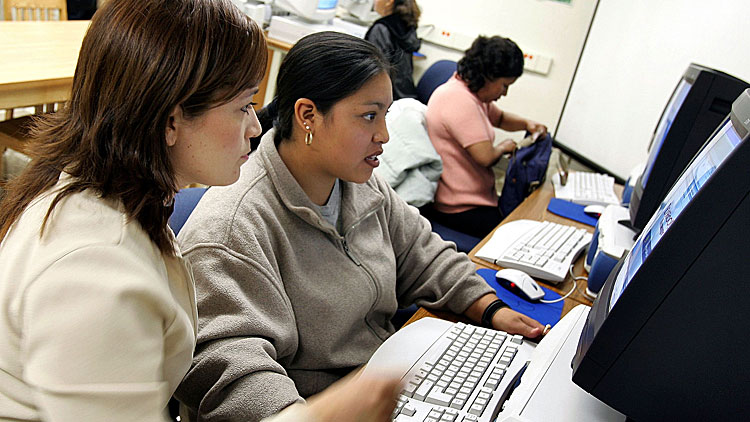Nicole M. Young, MSW

The stormy weather won’t last forever and someday the chaos will be a distant memory, but right now it’s hard to see past the rain. I imagine this is what life feels like for people who are faced with challenge after challenge — unemployment or unlivable wages, eviction or foreclosure, chronic hunger, family conflict or violence, health problems, fear of deportation, substance abuse, mental illness. Adding parenting struggles to an already difficult situation can become the storm that triggers what feels like a personal mudslide, with an overwhelming mess to clean up.
•••
Dear Nicole,
•••
Dear Sarah,
Thank you for your question. I’m sure other parents and caregivers feel the same way. It’s common for kids to have difficulties at home and school at different points in their lives. Sometimes it’s related to changing hormones, and all you can do is show empathy and teach them coping skills like deep breathing. Other times, challenging behaviors may be signs of a learning disability, emotional distress, problems with peers, substance abuse or other physical or mental health issues. Addressing problematic behaviors often becomes a dreaded task that families put off until a crisis erupts that can’t be ignored. Here are a few ideas to try before reaching a crisis point:
Start a conversation. Set aside time to talk with each child about school. Although it may seem easiest to just tell them what to do, that could shut down the conversation before it’s begun. Instead, ask open-ended questions to find out what they think and feel about school – things they like and dislike, what’s going well and what’s difficult. Use a calm tone of voice that shows you’re genuinely curious about their answers, and listen without giving your opinion. This will help you identify possible explanations for your children’s difficulties at school and increase the chance they’ll be honest with you. Acknowledge and validate their emotions, even if you don’t agree or think they’re overreacting. The more they feel heard, the greater the chance they will stay engaged when you discuss possible solutions.
Keep the lines of communication open with school staff. Schools can be a significant support for students and families. Ask the teachers what they’ve noticed about your children’s behaviors, learning styles and progress. Ask school administrators what other support services are available. Your children may prefer to talk to school counselors or other trusted staff. If that happens, take it as a good sign your children are doing their part to make small changes.
Final Thoughts: When family life is hectic, a few practical parenting tips can be like a life preserver that helps you stay afloat. Remember that starting small is better than not starting at all. It’s true that small changes make big differences.
Nicole Young is the mother of two children, ages 13 and 16, who also manages Santa Cruz County’s Triple P – Positive Parenting Program, the world’s leading positive parenting program. Scientifically proven, Triple P is made available locally by First 5 Santa Cruz County, the Santa Cruz County Health Services Agency (Mental Health Services Act) and the Santa Cruz County Human Services Department.
•••
For more information about how Triple P helps parents handle everyday parenting challenges, visit http://triplep.first5scc.org, www.facebook.com/triplepscc or www.youtube.com/triplepsantacruzco. To find a Triple P class or practitioner, contact First 5 Santa Cruz County at 465-2217 or triplep@first5scc.org.